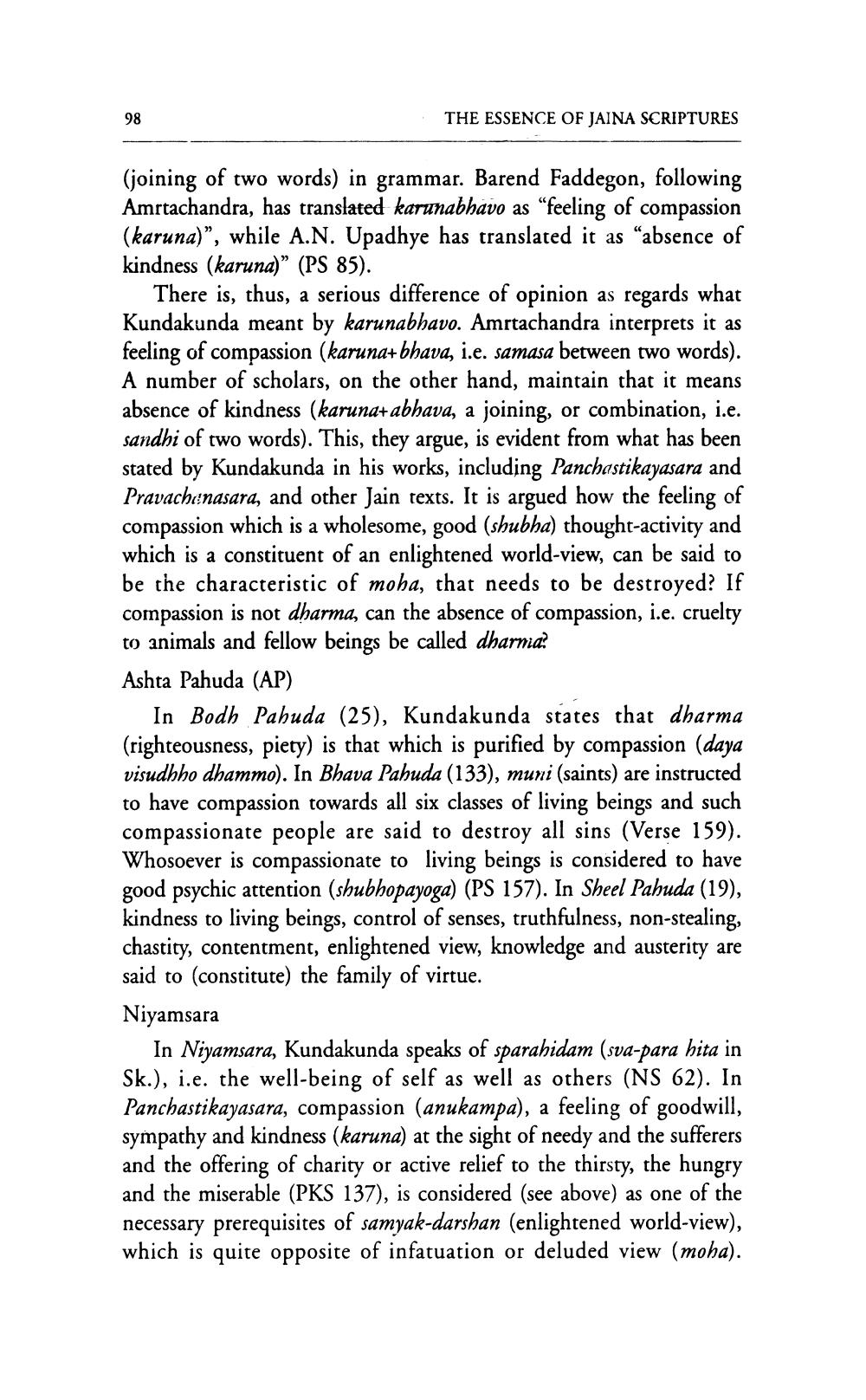________________
98
THE ESSENCE OF JAINA SCRIPTURES
(joining of two words) in grammar. Barend Faddegon, following Amrtachandra, has translated karunabhavo as “feeling of compassion (karuna)”, while A.N. Upadhye has translated it as "absence of kindness (karuna)” (PS 85).
There is, thus, a serious difference of opinion as regards what Kundakunda meant by karunabhavo. Amrtachandra interprets it as feeling of compassion (karuna+bhava, i.e. samasa between two words). A number of scholars, on the other hand, maintain that it means absence of kindness (karuna+abhava, a joining, or combination, i.e. sandhi of two words). This, they argue, is evident from what has been stated by Kundakunda in his works, including Panchastikayasara and Pravache:nasara, and other Jain texts. It is argued how the feeling of compassion which is a wholesome, good (shubha) thought-activity and which is a constituent of an enlightened world-view, can be said to be the characteristic of moha, that needs to be destroyed? If compassion is not dharma, can the absence of compassion, i.e. cruelty to animals and fellow beings be called dharnia? Ashta Pahuda (AP)
In Bodh Pahuda (25), Kundakunda states that dharma (righteousness, piety) is that which is purified by compassion (daya visudhho dhammo). In Bhava Pahuda (133), muni (saints) are instructed to have compassion towards all six classes of living beings and such compassionate people are said to destroy all sins (Verse 159). Whosoever is compassionate to living beings is considered to have good psychic attention (shubhopayoga) (PS 157). In Sheel Pahuda (19), kindness to living beings, control of senses, truthfulness, non-stealing, chastity, contentment, enlightened view, knowledge and austerity are said to (constitute) the family of virtue. Niyamsara
In Niyamsara, Kundakunda speaks of sparahidam (sva-para hita in Sk.), i.e. the well-being of self as well as others (NS 62). In Panchastikayasara, compassion (anukampa), a feeling of goodwill, sympathy and kindness (karuna) at the sight of needy and the sufferers and the offering of charity or active relief to the thirsty, the hungry and the miserable (PKS 137), is considered (see above) as one of the necessary prerequisites of samyak-darshan (enlightened world-view), which is quite opposite of infatuation or deluded view (moha).




